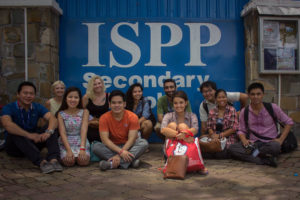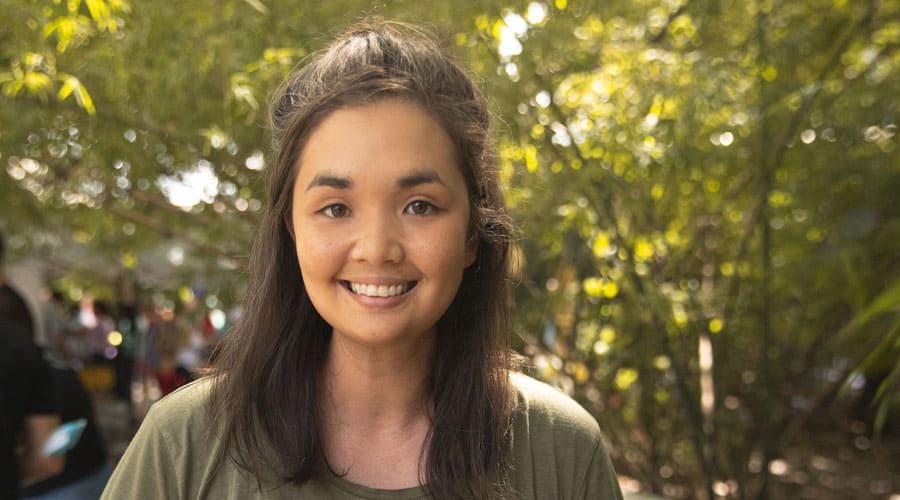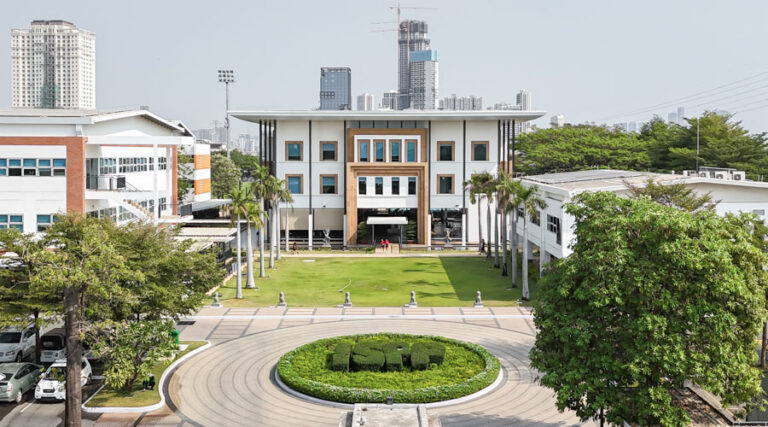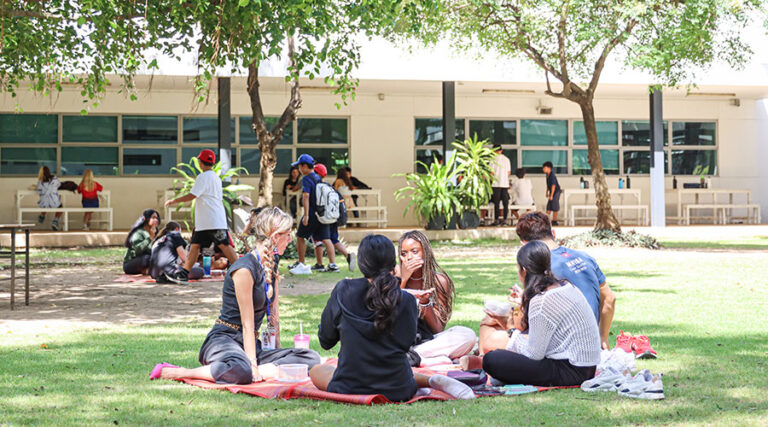Alumni Interview: Thida Leiper
Class of 2005 | Years at ISPP: 1991 – 2005
What years and grades did you attend ISPP and when did you graduate?
I attended ISPP in 1991 and graduated in 2005 (my sisters and I were some of the first students).
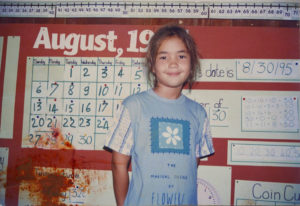
Where do you reside now? (City, Country)
I live in Phnom Penh, Cambodia!
Name the places you have lived in.
Phnom Penh, London, Bangkok, Melbourne, Madrid
What have you been up to since graduating from ISPP?
After graduating from ISPP, I moved to London, UK to study Southeast Asian Studies at SOAS (The School of Oriental and African Studies). After completing my bachelor’s degree, I spent two more years working in London before spending six months backpacking across South America. I then decided to move to Melbourne for a year on a working holiday visa and saved up my money to continue my travels around Australia and New Zealand. Throughout my travels, I discovered a serious passion for photography and devoted a lot of time to develop my creative and technical skills.
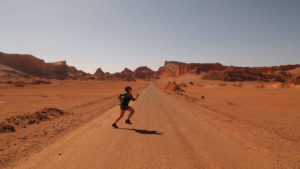
My journey landed me back in Phnom Penh, where I spent a few years trying out different jobs (which included being ISPP’s Alumni Officer for a year). I then discovered my passion for digital media which led me to pursue a Master’s Degree in Visual & Digital Media at IE University in Madrid, Spain.
I got married a year and a half ago and I am now back in Phnom Penh working for the Wildlife Conservation Society as a Marketing Manager for two of their conservation enterprises; IBIS Rice (a wildlife-friendly & organic rice brand that is helping to protect endangered wildlife & forest) and Sam Veasna Conservation Tours (an ethical birding & wildlife tour company that is also supporting vital conservation projects in Cambodia).
Which countries have you travelled to?
The Philippines, Indonesia, Malaysia, Myanmar, Australia, New Zealand, Brazil, Argentina, Chile, Bolivia, Peru, Spain, Portugal, Morocco, Sweden, Norway, France, Turkey, Kenya, Tanzania, USA, China, South Korea.
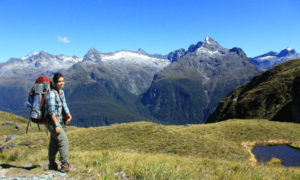
What was your favourite subject or who was your favourite teacher?
I have quite a few favourite teachers who had a major impact on my life, but one that stands out the most was my Music and English teacher Janet Field. I dealt with depression in high school, which made academics a real struggle. But I found an outlet through the creative arts and I am so grateful for her hard work in providing so many platforms for us to express ourselves. Even if you were failing in class, if she saw that you had a passion for the performing arts, she took that very seriously and coached you to give a performance that you would be proud of!
Most importantly, Janet helped me realize that I was smart, valuable, and talented, which eventually gave me the confidence I needed to thrive in all areas of studies (and life). I hope to see her again one day and tell her what her support meant to me.
What was the coolest art project you did?
Hands down, the first MRISA Cultural Exchange performance! I believe the theme was “Life on the Mekong” and we put together a very abstract interpretation, which included shadow puppets, an original music composition, Khmer language, and great sound effects using buckets of water and a huge sheet metal sheet (for lightning). It was hosted in Ho Chi Minh City and we had to drive there by bus. I’ll never forget having to get off the bus at the border in order to carry all sorts of random things like large bamboo sticks, xylophones… Oh, and a huge water buffalo head made from foam. It was wild!
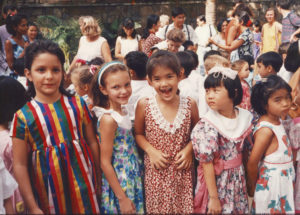
In your opinion, what makes ISPP stand out?
Having spoken with so many former students, parents, and teachers about who they are really looking forward to seeing, most of the time it is members of the Cambodian staff. I think there is something to be said about the strong bond we feel for Cambodia, and it is a big thanks to the exceptional warmth of the Cambodian community. Life as an international student can be so transient, so I think alumni are really appreciative of how much they’ve felt welcomed and cared for by their host country, and what that has contributed to in terms of their growth and sense of home.
If you could give ISPP’s current Grade 12 class some advice at their graduation, what would it be?
It’s difficult for me to give the right advice as 2020 has been a tumultuous year and the global situation continues to be incredibly challenging. I have the utmost respect for the students and educators that have adapted to these unprecedented circumstances, and I think that you all should be very proud of yourselves for being so agile and resilient.
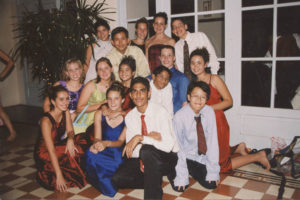
If you are someone that doesn’t like the way the world looks right now, see this next stage in your life as an opportunity to dig deep into your strengths and hone your active listening, critical thinking, creativity and collaboration skills to action the change you want to see. Navigate through the challenges with a lot of empathy and a willingness to self-reflect. Don’t underestimate the power you have to make a difference, big or small.
In addition to our regular questions, we asked current ISPP students to send their own questions to Thida on social media, and here’s what they asked her:
Are there opportunities for students to get involved in conservation in Phnom Penh?
I don’t know of any specific internships or volunteer programs for students in Phnom Penh currently, but that doesn’t mean that there aren’t opportunities. Every sector has a role to play in conservation, and you can contribute to the work in any sector you find yourself in (whether it be science, finance, politics, fashion, graphic design, etc.). This is the defining issue of our generation and everyone can participate!
My best advice for any opportunity seeker would be to research the organisation/company that you are interested in and to contact them directly. Introduce yourself, the reasons you are interested in getting involved, and what you can offer as a volunteer/intern/employee. If you don’t get a response, don’t be discouraged. It’s always good practice to do the research and to communicate what experience and skills you have to offer.
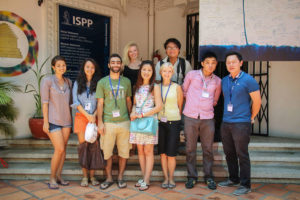
What other jobs do you wish to work next? Are you interested to work as a CEO assistant?
Hehe, why assistant? As I gain more experience as a marketing manager, I see lots of leadership opportunities for myself. That could be being the director of marketing for my organisation, creative director of an agency, or starting my own creative agency.
From all experiences you got from your work, what are you looking to develop in yourself?
I think gaining more confidence as a leader. It’s taken me a long time to figure out the career path that was right for me, and I am relatively new to an industry that is constantly changing. But I know that with some more time and experience, I will get more comfortable leading a team and trusting my instincts.
What did you study in your uni days?
For my bachelor’s, I studied Southeast Asian Studies at the School of Oriental and African Studies (SOAS) in London, UK. My favourite subjects were Southeast Asian Film and Gender & Sexualities in Southeast Asian Film. I chose to do my masters in Visual and Digital Media when I was 30 at IE (Instituto de Empresa) University in Madrid, Spain. My favourite subjects were Media Ethics, Graphic Design, Photography & Video Production, and Multimedia Storytelling.
Did you know what you wanted to do when you finished high school?
Not at all! All I knew was that I wanted to be involved in something that was making a difference in the world. When I was at ISPP, the large majority of parents were involved in NGOs or diplomacy, so I didn’t have a lot of insights into other fields of work and thought that studying something like international development was the only way I could make an impact. But I was so wrong to think that my passion for creative arts had no value in the field of development, politics, or conservation!
 I’ve learned now that it is really important to discover what you are most passionate about and to let that lead your decisions. Luckily, there is a lot more acceptance and appreciation for fluidity career-wise, meaning more flexibility to try different things instead of having to follow a linear career path in order to achieve success. And if you decide to “work-to-live” rather than “live-to-work” that’s totally fine! If you aren’t sure about what you want to do, my best advice is to take advantage of the diversity of the workforce within the Phnom Penh community and to speak to different professionals about what it’s like to work in their industry.
I’ve learned now that it is really important to discover what you are most passionate about and to let that lead your decisions. Luckily, there is a lot more acceptance and appreciation for fluidity career-wise, meaning more flexibility to try different things instead of having to follow a linear career path in order to achieve success. And if you decide to “work-to-live” rather than “live-to-work” that’s totally fine! If you aren’t sure about what you want to do, my best advice is to take advantage of the diversity of the workforce within the Phnom Penh community and to speak to different professionals about what it’s like to work in their industry.
How do you feel your time at ISPP contributed to where you are now?
I think ISPP and the IB program really forced me to explore multiple interests, and that really has helped me to develop a versatile set of skills and learn how to be adaptable to different situations. I also feel that the culture at ISPP really taught me not to conform to one single identity. There wasn’t any social pressure to be tied to just one area of interest, so it made it feel really natural to be involved in lots of different activities and feel confident about reinventing myself without judgment.
I also think doing independent work like the personal project and extended essay taught me the value of making what I do personal. My teachers really were excellent in encouraging me to dig deep and to put myself and my unique perspective into what I do. Approaching tasks in a way that is meaningful has really helped me thrive in both my professional and personal life.
How did you find job opportunities/connections to companies?
When I was fresh out of university and living in London and Melbourne, I usually turned to job search websites and temping agencies to find work. But since being back in Cambodia, I’ve been able to find work a lot faster through connecting with different professionals at networking events or through friends. I think Phnom Penh is a fantastic place to meet with like-minded individuals and discover loads of exciting opportunities, as a lot of the communities here are very close-knit and engaged in really interesting projects.
If you could go back in time to your days at ISPP, what would you do better?
I think I would do better to take initiative to start my own club or get involved in an advocacy project. I would have loved to be involved in something like The Grapevine for example (shout out to the team, you guys are doing great work!)
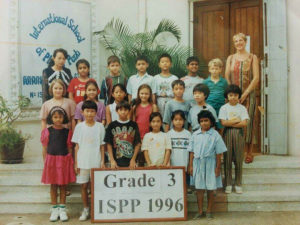
How much has Phnom Penh changed since you attended ISPP?
Phnom Penh has changed dramatically since I was at ISPP! It’s always interesting to see the reactions of old friends who come back to visit Phnom Penh for the first time in years and see how much more modern the city is. But it can also be quite hard to let go of the home that we once knew.
How did you stay motivated to be productive during your travels?
The only goal I had when I travelled was to try as many new things as possible! So just being out and about was being productive to me as I was constantly out of my comfort zone and trying new things. However, in my personal opinion, the motivation to backpack as much as possible can be conflicting as it can sometimes be very self-serving. So getting involved in responsible volunteering or investing your money in the right place can also be very motivating and productive.
Have you visited ISPP since you graduated? If so, how much has it changed?
Yes, in fact, I worked at ISPP as an Alumni Officer when the school moved to the new campus. I remember it being quite overwhelming as it’s always hard to let go and adapt to change. We didn’t want to be defined by how modern our facilities are nor should we be. While there are so many things that are different physically, I do feel that certain aspects of the school culture have remained the same and I’ve loved seeing traditions continue like International Day, the Lip Sync Contest, and Battle of the Bands.
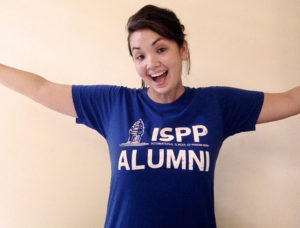
How did you figure out what you wanted to do with your life?
I consider myself somewhat of a late bloomer as I didn’t know exactly what I wanted to do until I was 30. I’ve been a market research executive at a global company, a 3rd-grade teacher, an Alumni Officer, and a marketing manager, and while there may not be a clear connection between all the jobs that I’ve had, every experience was valuable to discovering what I wanted to do with my life. So to put it simply, just being open to trying new things and discovering what skills I had to offer to the causes I really cared about really helped.
What are your best tips for working during university?
If it’s your first time working, I would start by looking for jobs around campus as they will offer more flexible hours to students. I was a bartender at my student union for a couple of years and it was a great first job as I was able to work near campus and make friends with people outside of my department (for me it was good to have that space).
Do you prefer the ISPP that you attended or the current one? Is there a difference?
That’s a tough question! Of course, my heart is with the ISPP that I attended as I loved my community and the old campus. It’s just home. The current ISPP is very different obviously with the new campus, technologies, and the larger community. After seeing the new campus facilities and learning about the expanded subjects, the different CAS activities, the Mother Tongue Programme, and overall support for students to start their own clubs and initiatives, I would be lying if I didn’t say I wish I could attend ISPP now!
